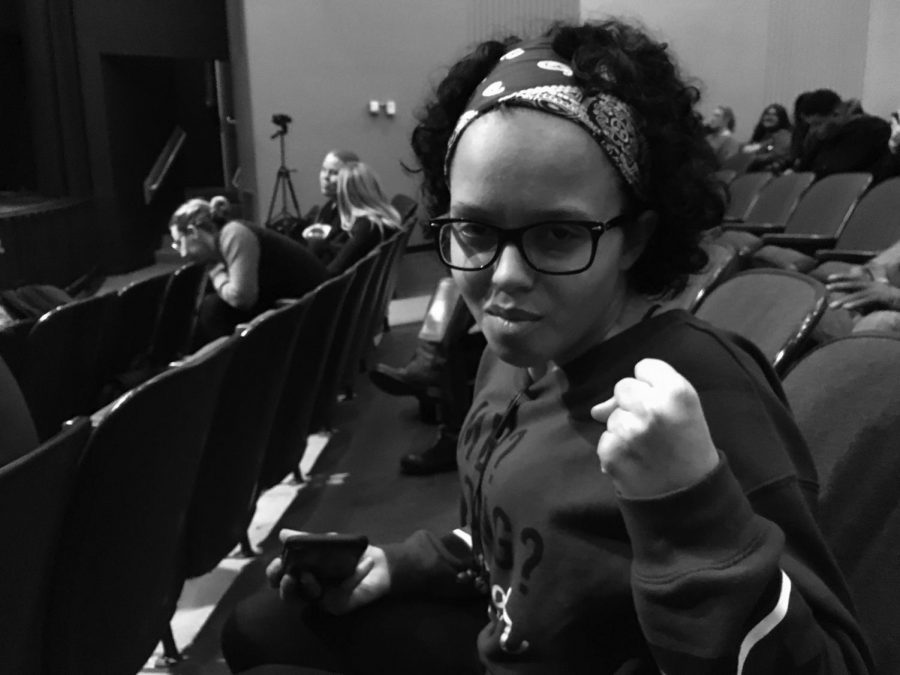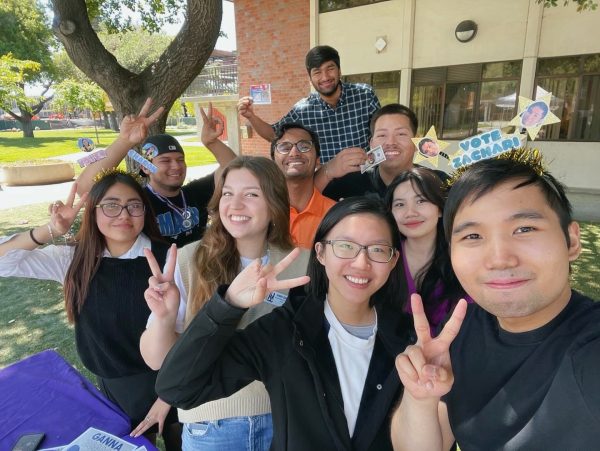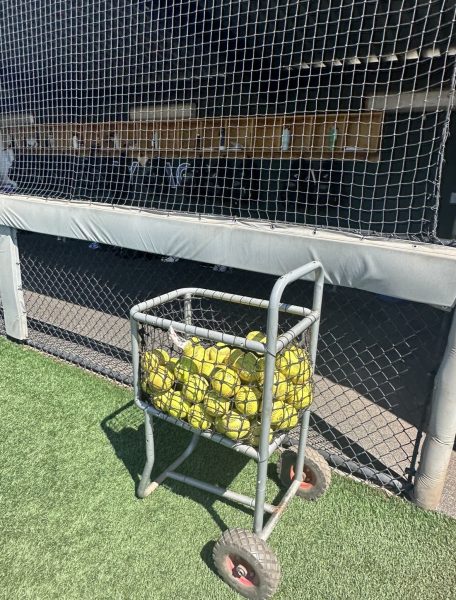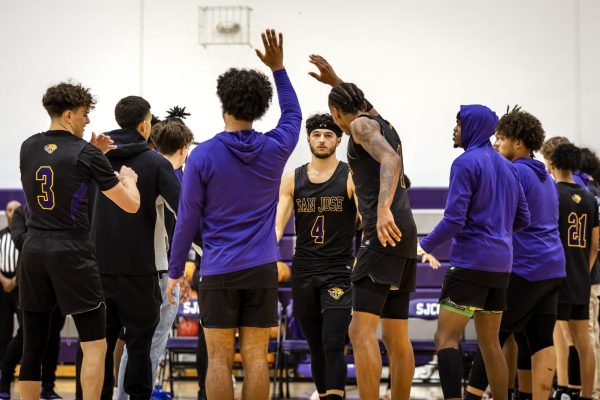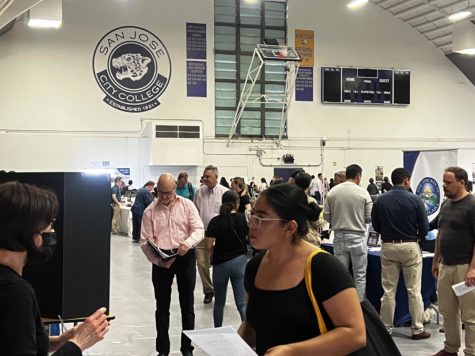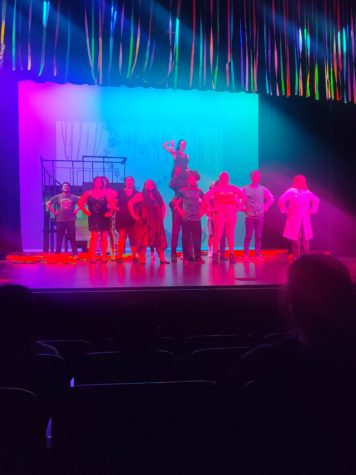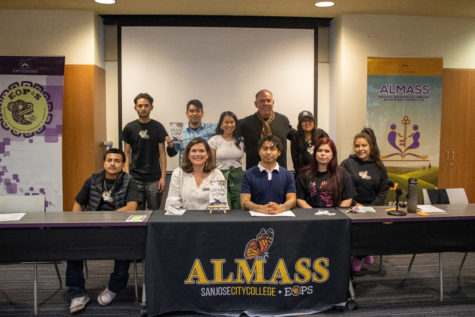Black history month ends with mass incarceration lecture in SJCC theater
Education about prison, breaks walls and builds bridges
March 25, 2019
Building bridges and fighting the system took the form of education in a lecture about mass incarceration during Black History Month’s celebration, which ended at the SJCC theater on Thursday, Feb. 28. Four guest speakers brought their inside perspectives about the prison system to a captive audience of approximately 150 people.
Activists against recidivism (the term for when a convicted criminal is re-booked) shared their experiences concerning the criminal justice system for approximately three hours. Topics of building community, mental health, the history of oppression of the African American community, difficulties of being lost in a system of injustices and building bridges from inside people’s homes were addressed.
O’Dell Johnson, founder of the Research Institute for Social Equity, reminded the attendees of the history of black American enslavement. Johnson, a humanistic/existential psychologist, said that the psychological impact of incarceration is such that, “No one comes out unharmed.”
“Our humanness is very, very discounted,” Johnson said. “We need more than a job. We need to heal from the inner core.”
Kimberly Carter, recipient of CNN’s Hero’s Award, spoke passionately about her advocacy work with the Time for Change Foundation, which she founded in 2002.
A former convict and drug addict, Carter ran into difficulties once she was released from prison. She said that she thought she had paid her debt when she completed her time in prison, but that “I don’t think society got that memo.”
“We are not a throwaway people,” Carter said, referring to the previously incarcerated women which she employs as mentors.
Derrick Lanos, a prison system survivor, spoke of the revolving door of recidivism.
“We are being treated like cattle,” he said. “I got trapped for 22 years.”
One of SJCC’s hearts beats at the center of this problem. Vanity, a KDAC major, spent 13 months in prison. When the Sensitive Needs Yards (which housed inmates likely to be harmed because of their affiliations or demographics) were integrated with the general population in 2018, he said that tension in the prison was exacerbated.
According to an article published on May 27, 2018 in the Sacramento Bee, the SNY have been ineffective at curbing violence, and this contributed
“My mental health will always be affected as long as I’m oppressed.”
Kimberly Carter, formerly incarcerated
to the decision to integrate the prison populations (https://www.sacbee.com/news/local/crime/arti- cle211942034.html).
Despite the intention to erase political boundaries between the inmates, Vanity witnessed the weaker and more vulnerable prisoners falling into violence out of necessity. Integrating the populations appeared to unify the prisoners on the outside, but it created more division on the inside of both the prisons and the people.
This indicates that instead of rehabilitating in- mates and getting people off of the merry-go-round of recidivism, the prison became more crowded and more violent.
Breyana Parker, an SJCC Nursing major who at- tended the event, said that dealing with the prison system is difficult.
“Fighting the system is a whole different battle than anybody expects,” Parker said.
Johnson Thieu of the Anti-Recidivism Coalition said that SJCC students could build a bridge out of the mass incarceration problem by doing advocacy work and providing “emotional intelligence for our kids to grow.”
Carter, who stated earlier during the lecture that “I have a Ph.’Do’, not a Ph.D,” gave her advice to Silicon Valley as well. “Technology could be a blessing … work with us to create a bridge.”
“I’ve lost years of my life,” Vanity said. “I have to work three times as hard. What would your advice be?”
“Your job is to win,” Carter responded. The audience clapped and cheered in agreement.
Carter’s Time for Change Foundation program in San Bernardino CA, provides housing, counseling and job training to help released women reunite with their children and break the cycle of homelessness. More information at the web address below
Johnson’s research organization, RISE, is focused on social and criminal justice reform. Its mission, according to its website, is “to address the psycho-social economic needs of the reentry population (http:// www.risejustice.org/about-rise).”
Jesus Fernandez, an SJCC psychology major, said he took useful information away from the lecture.
“It’s nice to know that there are a lot of resources and that you’re never alone,” Fernandez said.
Vanity said about his incarceration, “I learned who I don’t want to be.”

